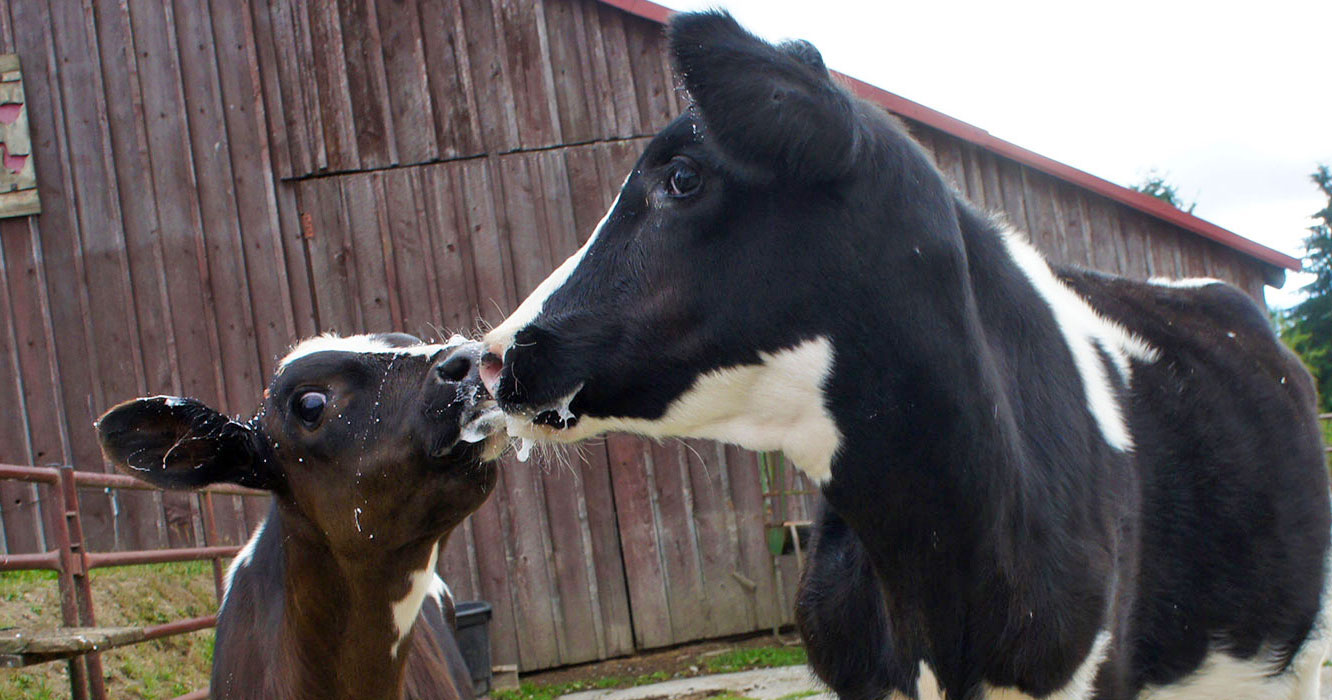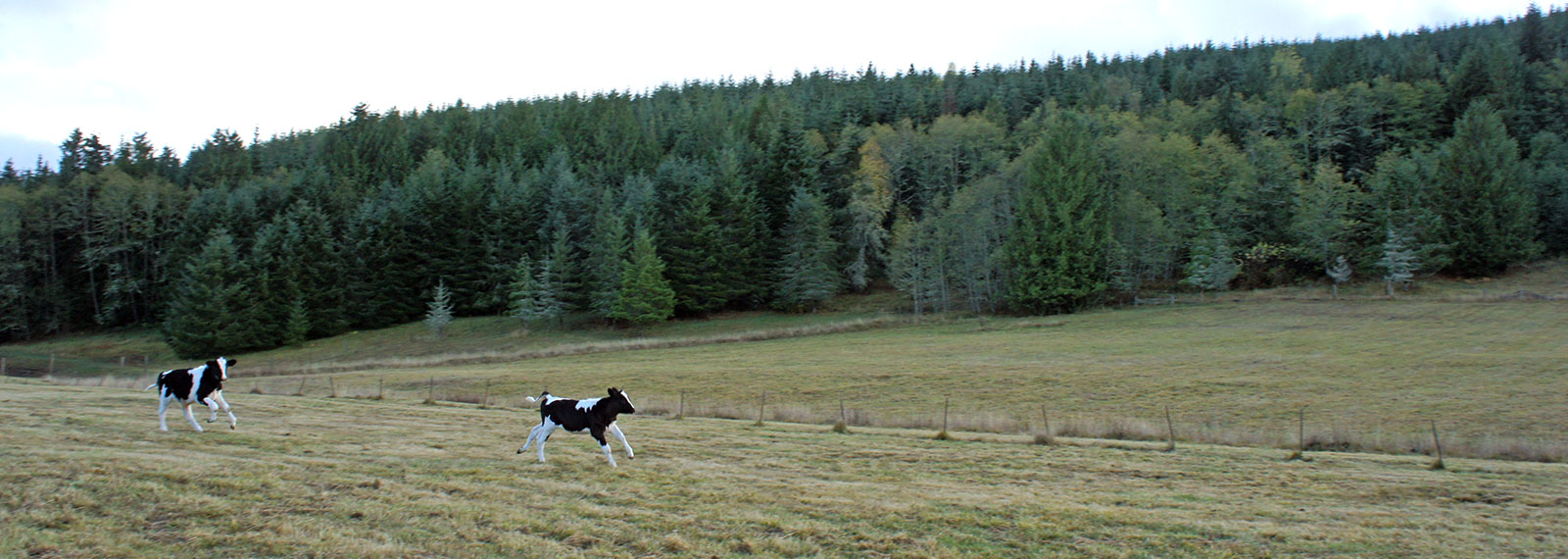
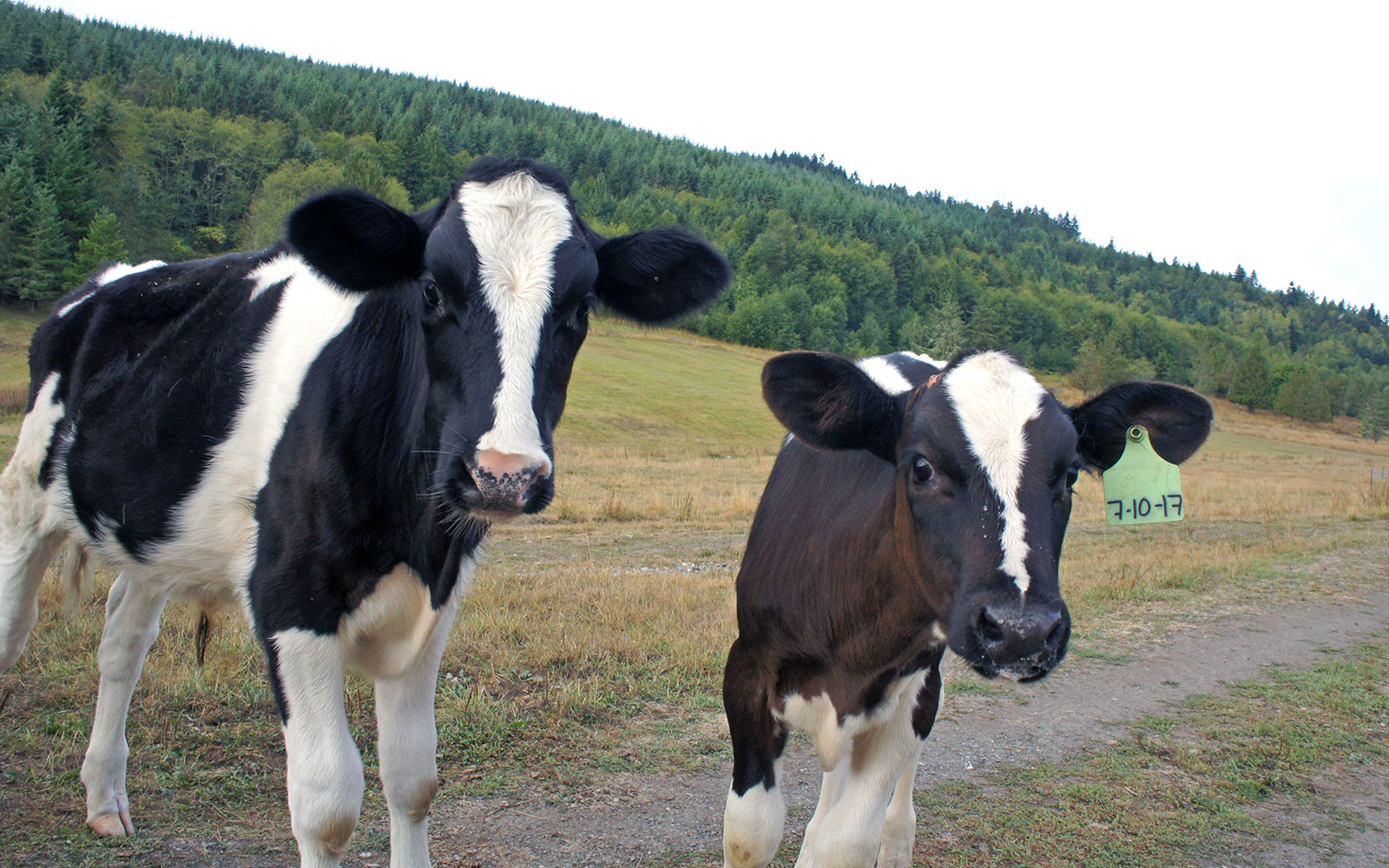
During 2017, Ralph and Caryl Turner, Founders of Precious Life Animal Sanctuary, and Ken Harada, volunteer, traveled to a large dairy on two different occasions with the intent to rescue a day-old male calf. All three have been there before and each time there is mounting dread to once again view in person the never ending cycle of suffering and cruelty.
Driving down the hill into the dairy, one can see a very large semi-open, dilapidated large holding shed crammed with dairy cows on concrete waiting to be milked. Outside and adjacent to the loading shed is a holding pen crowded with cows standing in ankle deep mud and excrement.
Across the driveway from the two structures are seven rows of eight plastic calf hutches in each row. They are similar to a large doghouse and inside each one is not one calf, but two with only enough room to standup or lay down. All have ear tags with their birth date and numbers of them in rows have been confined in this condition for three months waiting for a buyer. If any dog owner locked his or her dog in a dog house for this length of time, he or she would be easily charged with animal cruelty.
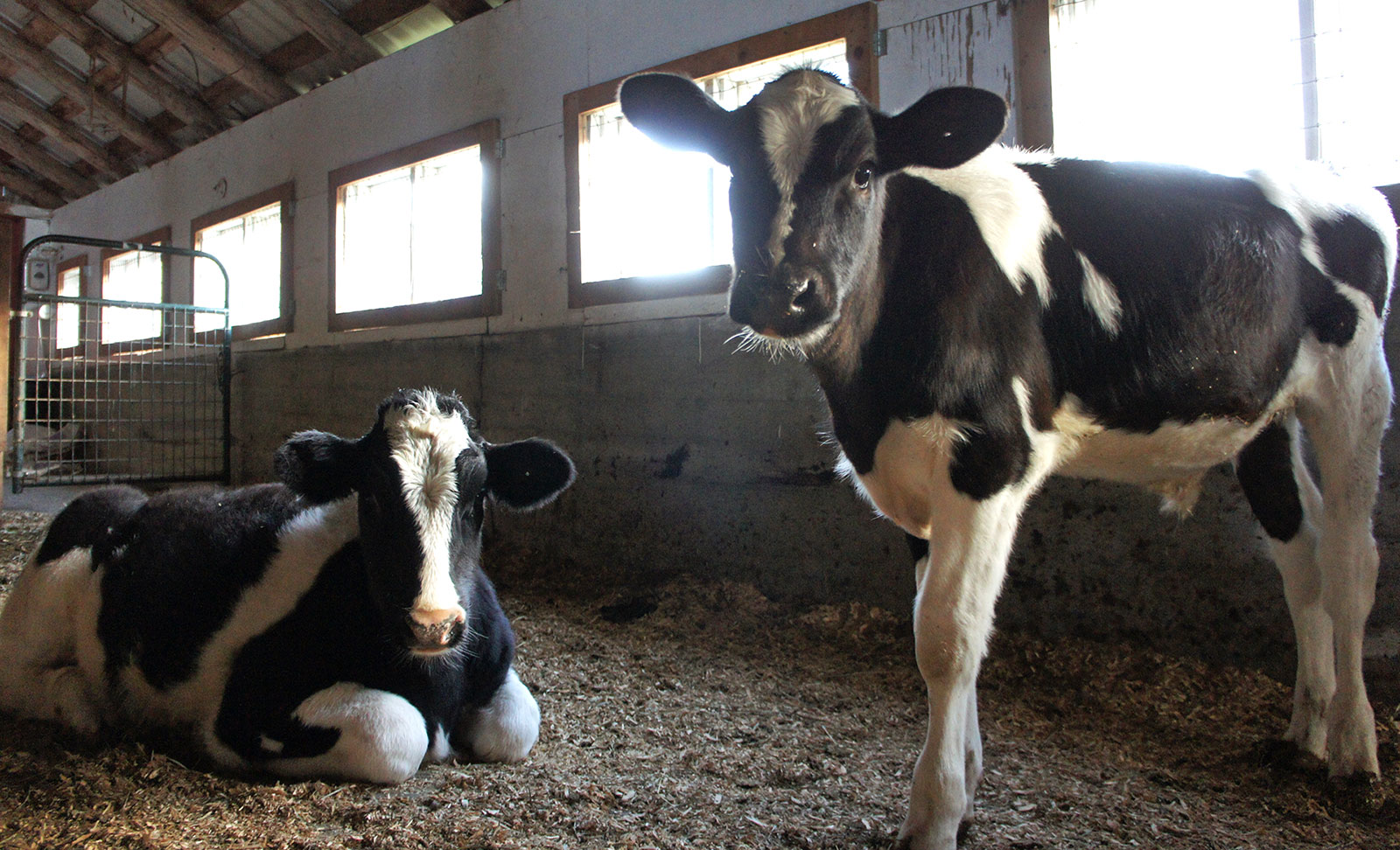
A dairy employee points out two rows of calves that are not for sale as they have been sold to a rodeo buyer. Another three rows are also not for sale and have been sold to a California meat buyer.
There are two rows of calves available for sale and the most vulnerable ranging in age from one to five days old. Upon passing by every hutch, some calves are laying down unresponsive looking away from our presence and appear traumatized by their plight and no doubt being taken away from their mothers. Some are standing and look at us with curiosity and fear, while others seem eager as if we might feed them their milk which is pumped through a tube into their hutch.
It is difficult to choose just one over another but one is finally chosen and removed from the hutch, picked up and carried to the van and placed on blankets.
As we drive away, tears well up on all three of us over the ones left behind and the daily uncaring and suffering they face during their short lives. Upon arriving at his new home, the calf is immediately placed in a warm rearing room on a bed of straw and given maximum milk along with much love and affection. The calf responds like a puppy full of energy and joy for his new life. The new calf is named Spunky due to his playfulness and energy running back and forth in a part of our lower barn.
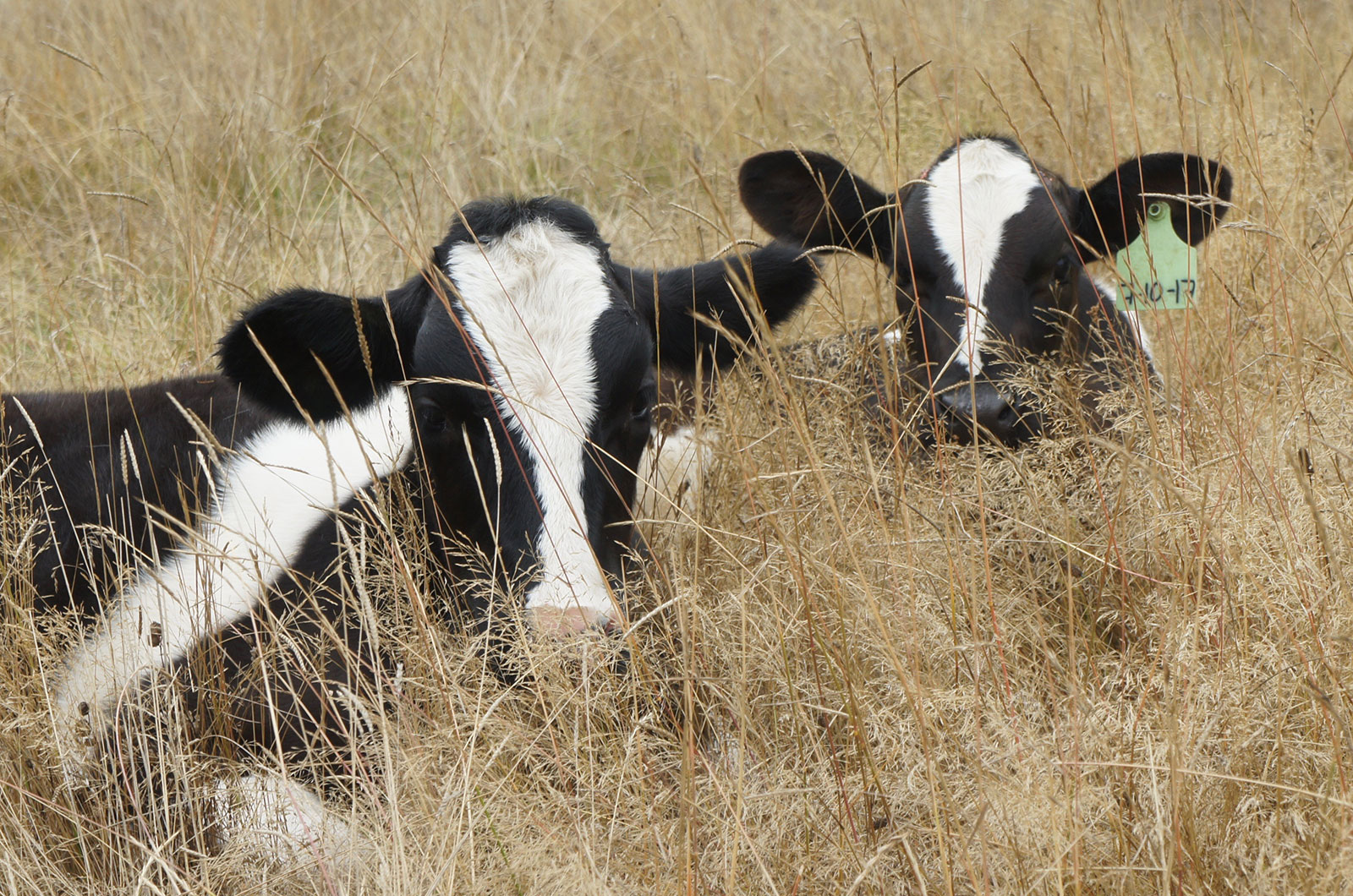
As months pass, it was plain to see that Spunky needed a companion close to his own age as the older cows showed little interest in his small presence and energy level.
All three of us returned to the dairy and once again passed along the day-old calf hutches and witnessed the sad eyes of so many new calves unable to comprehend any end to their imprisonment.
At the front of one hutch, we all focus on one very small fragile calf, light brown in color that resembles a motherless newborn fawn. He is the only one with a brown coat as all the others are black and white.
Upon picking him, he displays no resistance, immobilized by fear and remains motionless on his ride to the sanctuary. He receives an incredible amount of affection, petting and slowly gains confidence with all the attention.
He can’t seem to get enough milk and quickly puts on weight and is not quiet when he wants more. He becomes the most vocal cow ever rescued at PLAS. He moos incessantly for his bottle, for his feed and just in general. He is named Mocha for his fine brown coat that unfortunately disappears as the months go by and turns to black and white.
When introduced to Spunky, they immediately bond and are inseparable and difficult to tell apart with their similar markings. Both will have the unique opportunity compared to most cows to live out their natural lives of 15 to 20 years.
